In an excellent recent essay on “big visions for biology,” Sam Rodriques writes:
Ask most biologists about the cure for cancer, and they will tell you it doesn’t exist: cancer is many diseases that are mostly unrelated to each other, and that all have to be cured one at a time.
Are “most biologists” right about this?
We can get perspective on this from the history of infectious disease. After all, infection was also “many diseases,” with disparate causes (viruses, bacteria, protozoa) and disparate pathways (air, water, food, insects). And yet, while we did not exactly “cure infectious disease” (just ask the 248,544 people who got covid last week in the US alone), we did reduce every major metric of infectious disease by 90% to 99% in wealthy/developed countries:
- Overall mortality from infectious disease reduced by 90% in the 20th century alone
- Youth mortality (death before age 15) reduced from almost half to well under 1%
- Maternal mortality reduced from almost 1% to under 0.01%
- Surgical mortality reduced from half or more (for some major surgeries at least) to around 1% to 2%
Infectious disease was not the whole story in all of the above metrics, but it was the biggest factor in all of them.

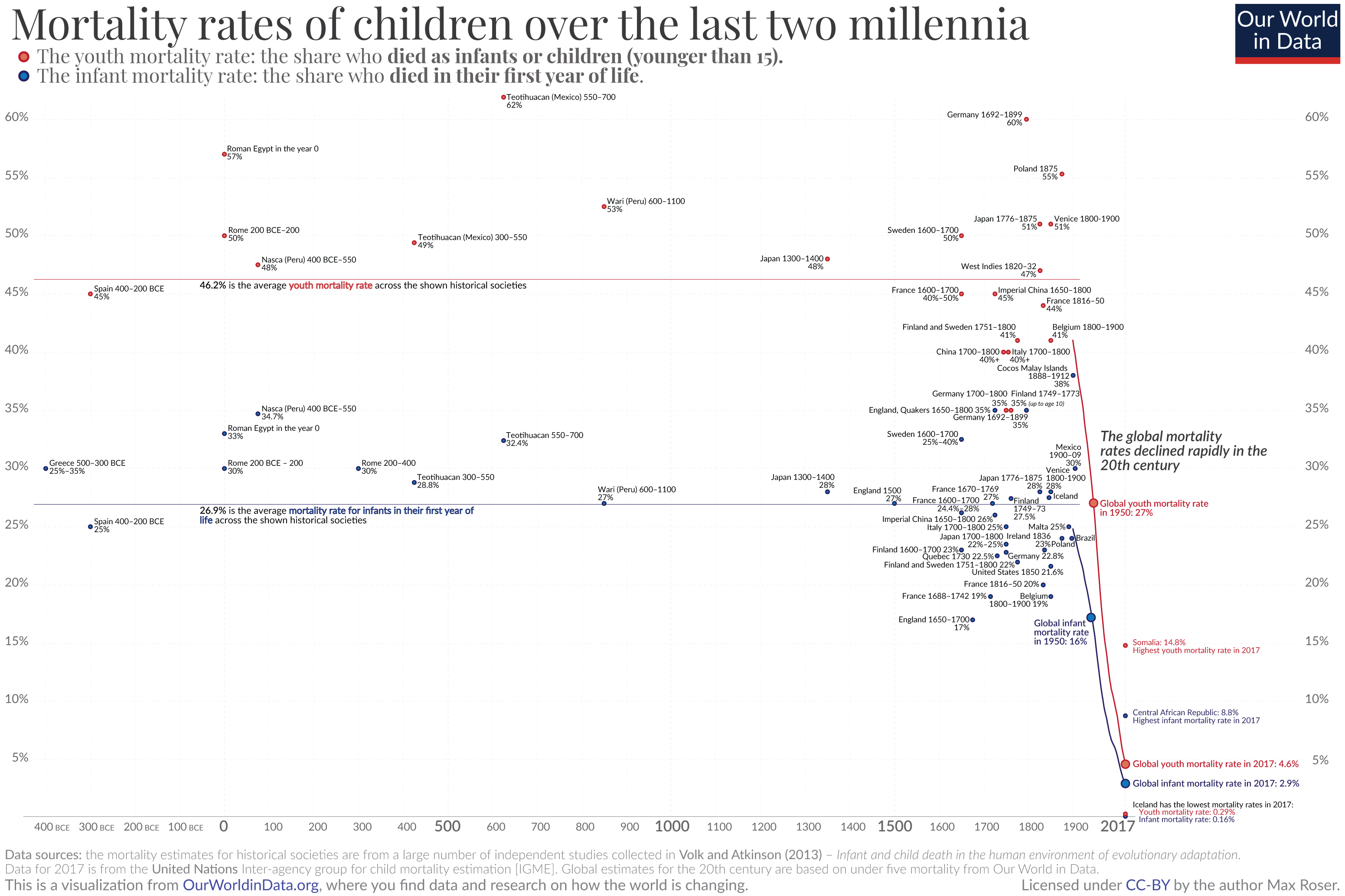
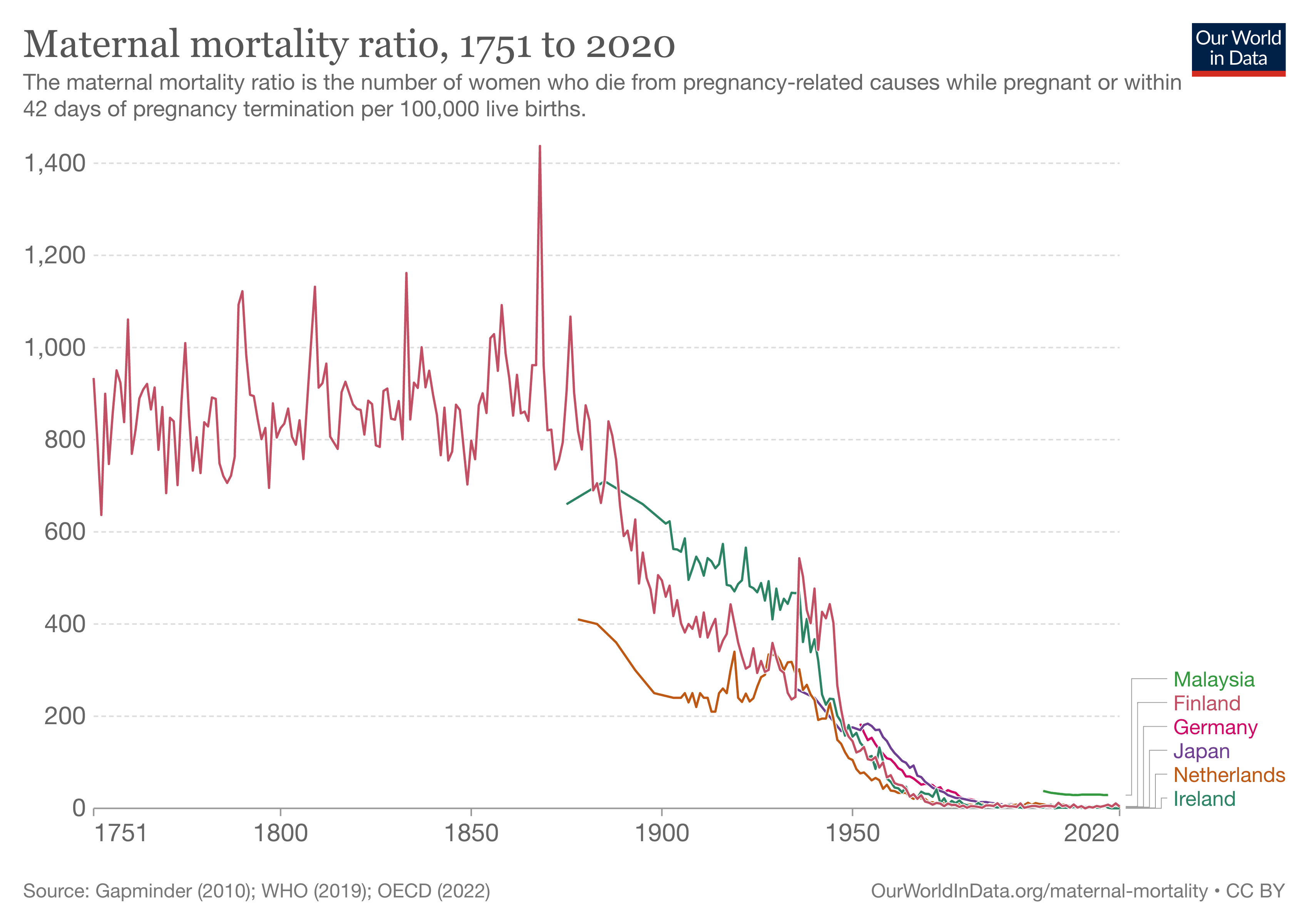
We also eradicated smallpox worldwide and eliminated diseases such as cholera, malaria, and polio from many countries:
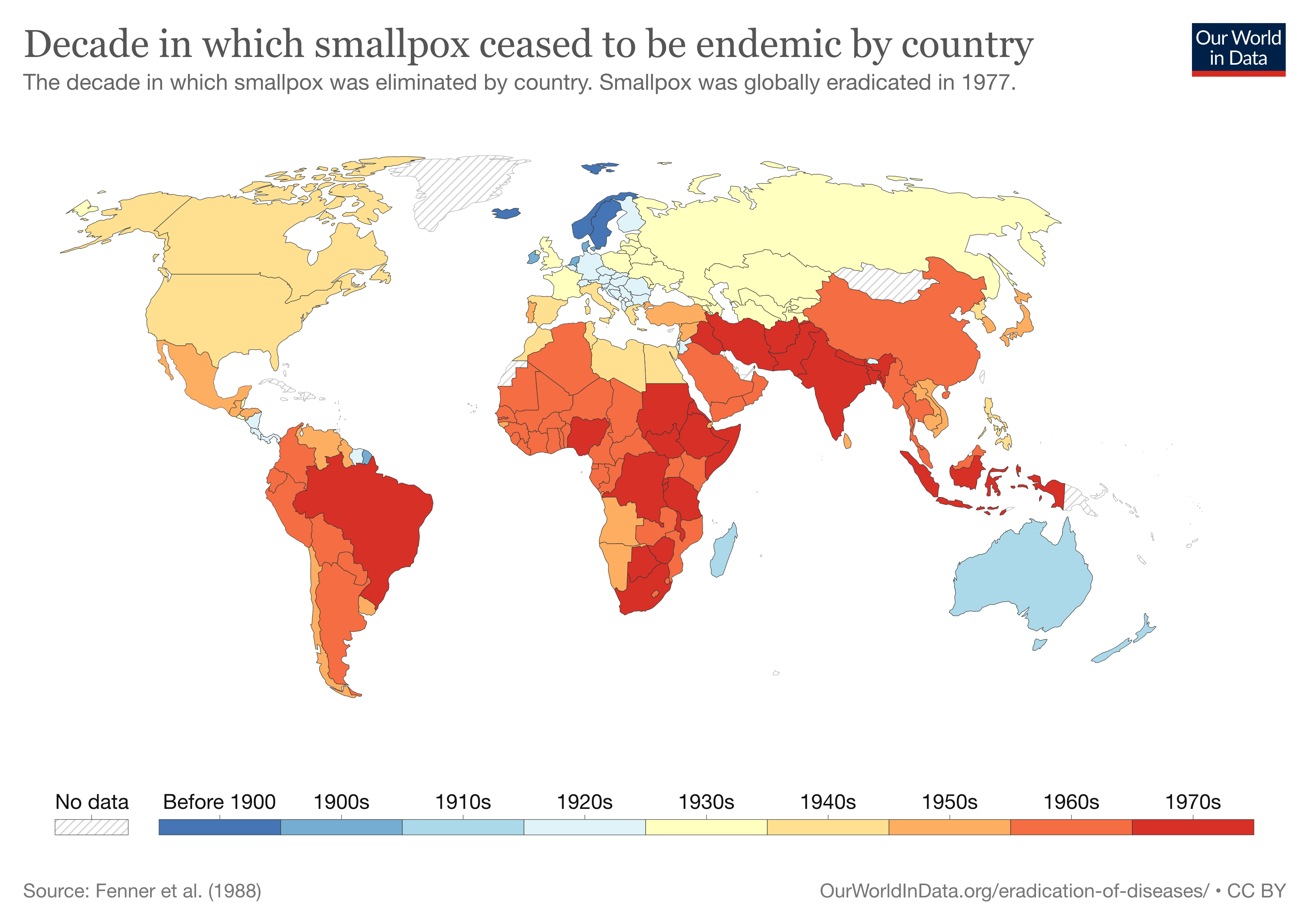
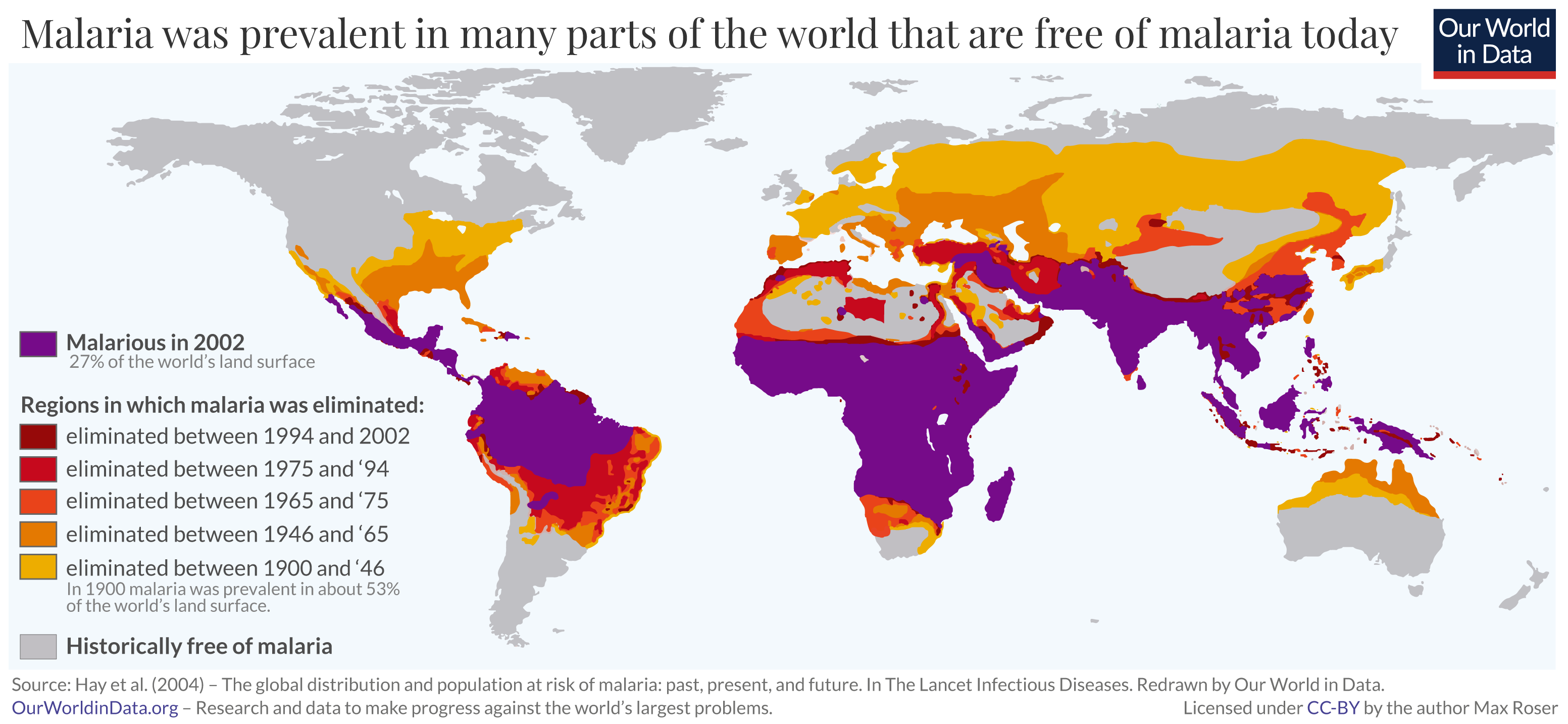
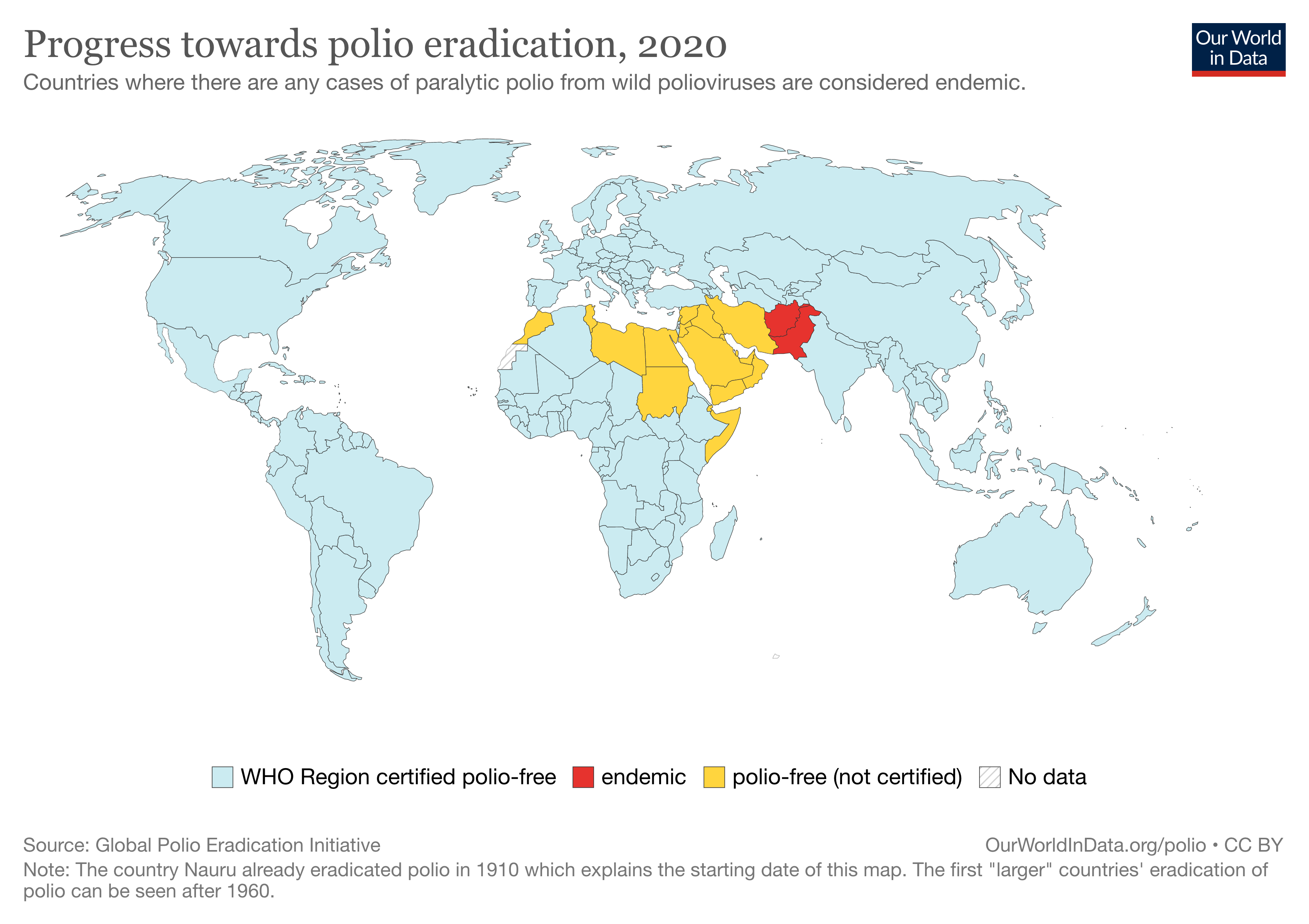
Did we have to cure all these diseases “one at a time”? No, not exactly:
- Sanitation and hygiene efforts were effective against broad classes of germs: e.g., water sanitation was effective against all water-borne diseases.
- Disinfectants and antiseptics, such as bleach, are effective against most if not all germs.
- Antibiotic drugs are effective against broad classes of bacteria.
- Vaccines do have to be developed one disease at a time—but even here there are general techniques for creating them. In fact, with mRNA technology, we now have a very general technique that can create new vaccines with relatively little adaptation.
Underlying all of this is a theory that explains the basic causal mechanism of infection: the germ theory. The theory alone doesn’t give us everything we need to cure each specific disease: new research is needed to understand the etiology and epidemiology of each one. But the theory does give us a conceptual framework and a set of tools to guide that research. Before the theory, we were able to make limited progress against some diseases; after it, we made much more rapid progress, and the diseases we weren’t able to solve became the exception rather than the rule.
I think we are in the pre-theory stage for cancer. We are able to make progress against some forms of cancer, as we reduced lung cancer by public health efforts against smoking. But we don’t, to my knowledge, have the fundamental theory that we need, and so overall progress is slow. [UPDATE: A commenter has convinced me that the “pre-theory” characterization is wrong.]
Infection and cancer are both “many diseases”—but those diseases have something in common. A deeper understanding of cancer will allow us to make much more rapid progress, on more fronts. There won’t be a silver bullet—no single treatment that will cure all cancers. More likely there will be a few major techniques, as with infection we had to develop sanitation, vaccination, and antibiotics; and even within each of those categories, we needed many specific efforts to develop each individual vaccine, antibiotic drug, and sanitation method.
But there is no reason why we can’t do for cancer what we did for infection: reduce it by orders of magnitude and knock it down from a number one cause of death to a much more minor and more manageable threat. And eventually, with more advanced science and technology, perhaps we will be able to truly cure both of them.

I love your essay's attempt to draw out the domains of infectious disease and compare them with regard to progress via broad measures and more specific measures.
As someone who reads a lot of the news about new papers in both domains, I see the two domains are very similar in this regard. The floor upon which cancer research rests is the commonalities between cancers. For decades there has been a War on Cancer, and lots of things are unified across cancer, including public health efforts to avoid carcinogens.
Most striking, look at the pipeline page for any pharma company with a major cancer effort -- like https://www.pfizer.com/science/oncology-cancer/pipeline -- and you'll find individual drugs being tested on cancers in multiple organs. For example Pfizer calls one of its compounds Braftovi, and they have Phase 2 or 3 trials using it for melanoma, colorectal cancer, and lung cancer. Similar marketed cancer drugs, like Gleevec, which is used for leukemia and other blood cancers, gastrointestinal stromal tumors, and skin tumors)
So the pharma intrustry is clearly fighting a war against cancer as a whole. Sam's comment is perhaps a bit of an exaggeration -- I've never heard a cancer researcher say that cancers are "mostly unrelated to each other" -- but, more important, such comments have the context that cancers are a bundle of closely-related diseases, and everyone either knows this or thinks they're a single disease.
I recommend https://en.wikipedia.org/wiki/The_Hallmarks_of_Cancer as the major framework that pulls together cancer into the major things that make a cancer succeed, including a somatic-mutation-rich environment, chronic inflammation, ability to replicate endlessly, evade the immune system, avoid programmed cell death, grow new blood vessels, and metastasize.
Another key to understanding cancer: knowing about the Oncogenic signaling pathways (p325 here: https://www.cell.com/cell/pdf/S0092-8674(18)30359-3.pdf). As far as I can tell these are much closer to being the actual "different diseases" in play than the various cancers named by organ. I don't know how these pathways work, or even how exactly cancer breaks them -- that's a lot of molecular biology! -- but just knowing their names I find the daily news about the cancer literature more legible.
Looping back to the comparison made in your essay between infectious diseases and cancers, I'm struck that we started fighting infectious disease a lot earlier. For example John Snow figured out that you could avert cholera by keeping sewage out of the water supply in about 1850, and if I recall Steven Johnson's book about public health, this was the beginning of a whole series of public health interventions against infectious disease. The idea of wearing sunscreen to avoid skin cancer seems to have come in during my childhood, over 100 years later. Same for the idea of averting lung cancer by not smoking.
I would list 3 major advances that have reduced infectious disease: public health measures, vaccines, and antibiotics. For cancer, the most effective measures are probably public health measures, surgery, chemo, and now immunooncology. Those best tools are all less effective than the best tools we use to fight infectious disease. That probably has a lot to do with how late the groundbreaking research started. Immunooncology only made its transition from minor theory to major treatment in about 2010. At a research level, treating cancer requires understanding molecular biology, and that discipline only really exploded in about 2000 when sequencing became cheap enough that we first sequenced a single human genome. There are obviously more big drug discoveries in the works, like CAR-T and cancer vaccines -- let's hope those scale, and let's hope there are more new discoveries on the way.
Thanks for the detailed thoughts!
Yes, we did start fighting infectious disease long before the germ theory. Most notably, the first immunization techniques, against smallpox, long predated the theory. Also there were sanitation reforms that helped significantly. But these methods were limited: e.g., no vaccines for any disease other than smallpox were created, and water sanitation did not include chlorination. Indeed, sometimes sanitation efforts backfired, as when Edwin Chadwick tried to clean up the stench of London by building sewers to drain all cesspools into the Thames, and ended up polluting the supply of drinking water. Progress was much more rapid and consistent after the germ theory.
https://www.harpercollins.ca/9780062894007/the-cancer-code/
Thanks Kent, can you say something about this book?
The book The Cancer Code contains three stories about the cause of cancer.
The first cause is a story about toxins; examples are lung cancer caused by smoking and asbestos.
The second cause is cancer is a genetic disease. And the book documents two or three cancers that are genetic in origin.
The third cause is poor metabolic health. The book notes that obese and diabetic people have higher cancer rates for certain types of cancer than metabolically healthy people.
The vital part for people following scientific progress is the people that believe in genetics did not come from the toxin believers, and the metabolic health advocates did not come from the genetic cause believers.
The author Dr. Jason Fung MD tries to explain where the different groups of believers came from, but I need to understand institutions better to explain it.